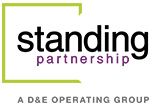It’s Time to Move from CSR to Sustainability Reporting
Even though your CSR report may have worked in the past, a greater focus on environmental, social and governance issues in many sectors means it’s time to transition from CSR to sustainability reporting.
CSR reports are no longer enough for stakeholders to evaluate the efforts your company is making toward improvement – it’s time to move from CSR to sustainability reporting. Reporting on corporate social responsibility (CSR) strategy has been a favorite for many companies for the last decade and has allowed those companies with social impact to showcase their efforts to support the workplace, give back to society, and to varying degrees, protect the environment.
However, these voluntary CSR reports give key stakeholders only a minimal insight into company activities and the impact of these efforts. What’s more, they were often ignored by Boards and investors because the reports fell short of explaining the impact of environmental, social and governance issues on the company’s financial performance.
CSR reports are being replaced by the more quantifiable and financially-relevant frameworks of sustainability reporting, such as Sustainability Accounting Standards Board and the Task Force on Climate-Related Financial Disclosures. Companies need to step up to the plate and prove that they’re serious about reporting their progress by moving from CSR to sustainability reporting. Here are three ways sustainability reporting will benefit your company’s sustainability position better than traditional CSR:
- Data-driven reporting. In comparison to CSR, sustainability reporting holds companies more responsible for their impact and gives credibility to companies who report their data in a transparent and consistent manner. Regardless of the reporting framework you choose, each disclosure needs to be backed up by data. Sharing that your company went to volunteer on a day off is good, but reporting that your company increased minority representation on your Board of Directors and leadership by 20% or that you reduced your energy intensity, which also saves the company money, is even better and is exactly what today’s stakeholders expect to see.
- Meet stakeholder needs. Moving beyond CSR to sustainability reporting requires you and your company to think deeply about what your stakeholders look for when making choices to invest, apply, or purchase, and to create goals that meet their needs.
- According to KPMG U.K., investors want meaningful data disclosures that focus on the impacts to decision-making and transparent reporting, with your management team being fluent in sustainability reporting and its financial and societal implications. Global sustainable investment topped $30 trillion in 2018 – up 1,000 percent since 2004 and 68 percent in only five years.
- As more millennials and Gen Z enter the workforce, they are looking for companies that are environmentally and socially responsible. This demographic will increase by 20% in the workforce by 2029.
- Another group with increasing demands is consumers, who are willing to pay more for sustainable products and services and have the potential to become loyal customers.
- Goal setting and accountability. Another advantage that sustainability reporting has over CSR is that it encourages companies to set goals and transparently communicate progress toward achieving those. CSR strategies often focus on what you most want to share, like your best successes and efforts toward improving. Sustainability reporting holds your company accountable for areas where you may have fallen short, as well as your successes, and annually tracks your progress against specific metrics. This means going beyond the goals of ‘making efforts to reduce carbon emissions’ by making a specific commitment, like ‘carbon neutrality by 2050.’ Creating goals that are specific, measurable, timely, and challenging can create real value for your company because it demonstrates to your investors, employees, customers and other stakeholders that you are serious about improving and helps them get a clearer view of your opportunities and risks.
In such an ever-changing world, it’s time to take the first step in enhancing and growing your reporting by moving beyond CSR to sustainability reporting. Ready to learn how sustainability reporting can benefit your company? Contact us to learn more at inquiries@standingpartnership.com.

